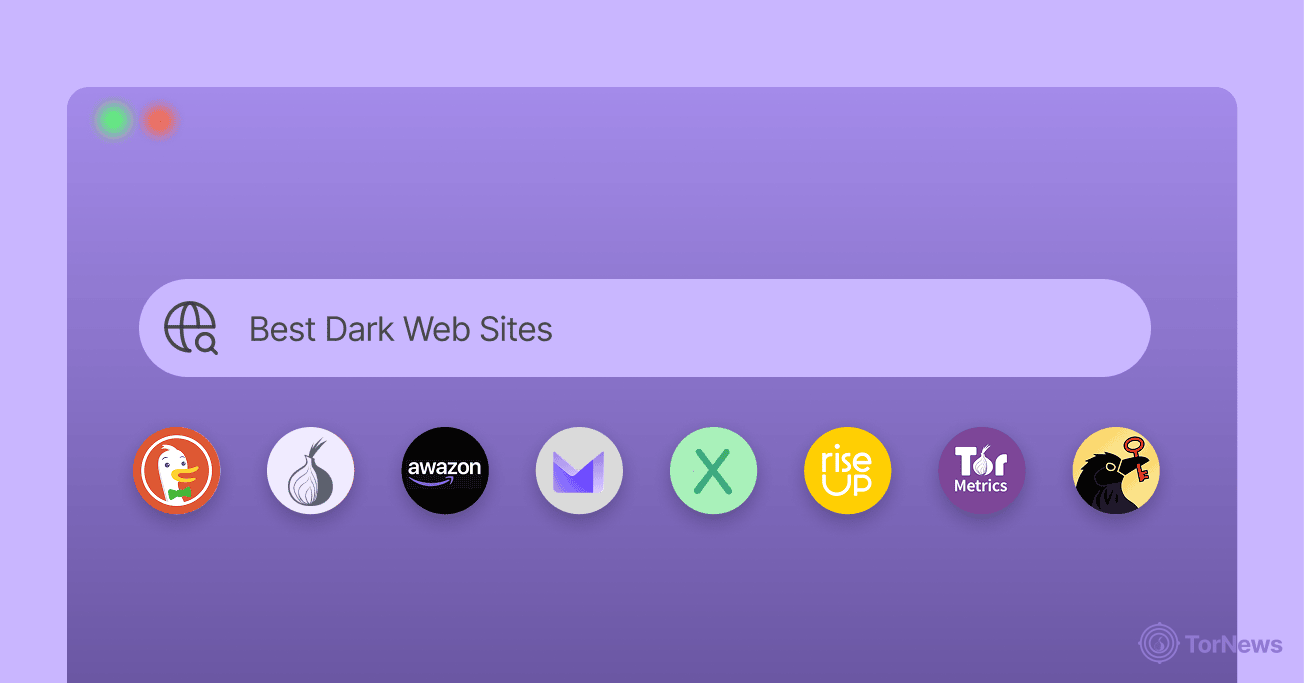Many people think of the ‘dark web’ as something straight out of a spy thriller. While it’s true that illicit dark web content exists, this hidden layer is also a vital refuge for journalists, activists, and citizens under repression, hosting crucial uncensored information and communication channels.
Exploring this vast, unindexed portion of the internet (often conflated with the broader ‘deep web’ of private databases and uncrawled pages) requires the right tools. Standard browsers like Chrome or Safari can’t access encrypted dark web sites (.onion addresses). To reach this specific, deliberately concealed layer, you need a specialized browser, and Tor is the most trusted option.
Once you’re connected, a new challenge arises: how do you find what you’re looking for? There’s no Google for the dark web. Instead, it has its own ecosystem of dark net search engines designed to help users navigate and filter .onion sites.
However, not all dark web search engines are created equal. Some prioritize user privacy above all else, while others focus on offering better filtering and usability. Choosing a secure and trustworthy platform is essential if you want to explore the dark web safely.
That’s why we’ve created this guide, your complete map to the best dark web search tools of 2026. We’ll review the top 10 platforms (and a bonus), outlining their key features, to help you browse the hidden web with confidence.
A Critical Disclaimer First-Up
We are providing this information for educational purposes only as TorNews does not endorse any illegal activities. Ever. If you choose to proceed, you must use a reputable, paid VPN such as NordVPN (currently more than 70% off) to hide your location and encrypt your traffic. Exploring the dark web carries inherent risks, and a quality VPN is your essential first layer of protection.
Best Dark Web Search Engines – Quick List
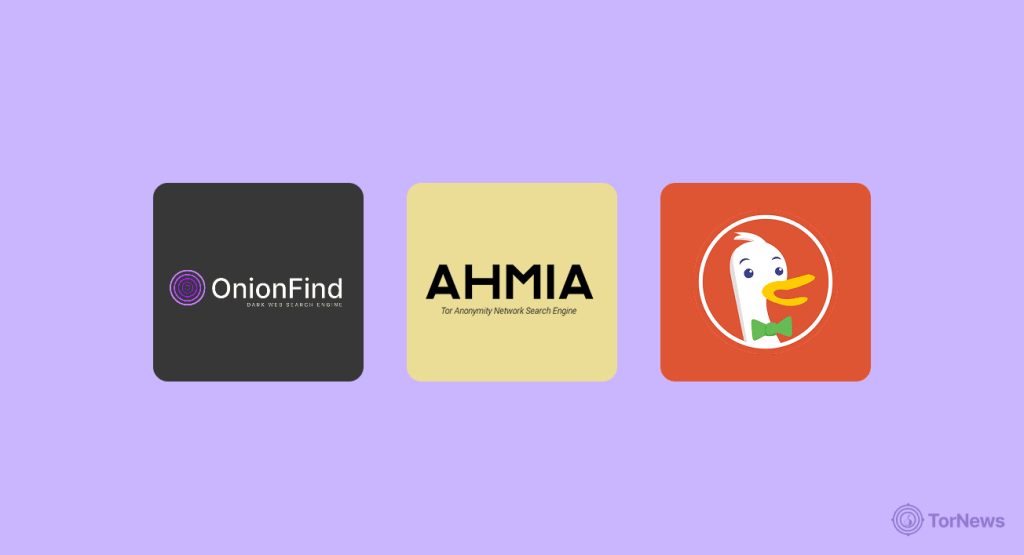
Before we look at these browsers very carefully, see the summary we made below showcasing the important features that make each of these dark web search gateways worthy to appear in our 2026 ranking:
- OnionFind: A streamlined and reliable search platform dedicated to discovering services on the Tor network with a priority on user safety over sheer volume.
- Ahmia: It is an open-source search service that helps users avoid contents that are malicious.
- OnionLinks: One of the oldest and biggest search tools, with a large index of .onion sites.
- DuckDuckGo: The privacy-focused surface web search engine, which also provides an onion version to allow anonymous searching.
- Recon: A more specialized search platform that searches through dark net markets and vendor reviews.
- OnionWiki: Not a traditional search engine, but a user-edited directory of popular and active dark web sites.
- TorDex: A new finding tool with a nice, user-friendly interface and an extensive and current index.
- VormWeb: An easy-to-use search service that also provides great news and articles on what is going on in the dark web.
- Haystack: Multifunctional site providing both a search tool, forums, and community interaction.
- DarknetSearch: Simple, and fast, search engine that users can open and work with easily without the need for high technical skill. It is also lightweight.
- Bonus – Torch: Suitable browser for advanced activities and needs on the dark web markets as it filters without missing and also tracks vendors with speed.
How to Access the Dark Web Safely
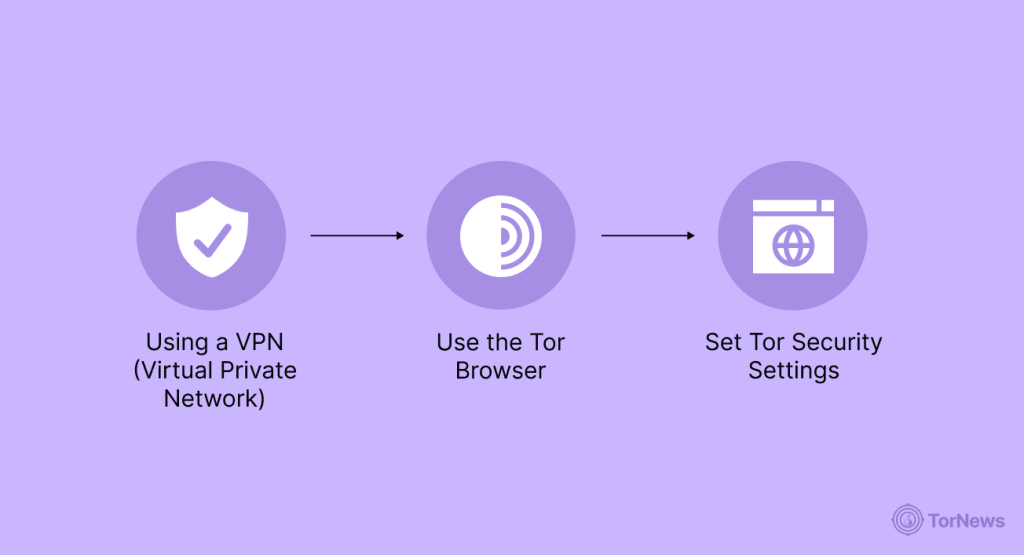
Before deciding on the search engines we listed above, you must first understand how to get onto the dark web.
If you simply enter a .onion address in an everyday browser, the website won’t open. And if it were to open, you’d be making a critical error, as it could expose your activity, as it would tell your Internet Service Provider (ISP) what you’re up to on the web.
Here’s the simple but real step on how to get to that dark web everyone is curious about:
- Using a VPN (Virtual Private Network): Why do you need to use a VPN? It is the first thing that will hide you on the web. A VPN will do what we all know as “encryption” on your internet traffic & hides your real IP address from both your ISP and anyone else who is busy monitoring your connection. So before you move forward, connect to a trusted, secure, and fast VPN like NordVPN. Note that you should never connect to those free VPNs that expose you and do more harm than they protect you.
- Use the Tor Browser: The Tor (The Onion Router) browser is the only way you have now to enter the dark web. This browser will hide the traffic you’re pulling on the internet. And it does this by routing the traffic through many servers called “nodes,” which volunteers operate. This will be your way into the .onion websites. While Tor is the most famous, it’s not the only option here. Our guide to the top 10 best dark web browsers gives a full breakdown of the top tools for the job.
- Set Tor Security Settings: Before You Browse, set the level of protection in the Tor browser to “Safest.” This will disable many scripts and browser capabilities that someone might be able to exploit to identify you.
- Practice good OpSec (Operations Security): Do not use your name, email, or any other thing that shows who you really are on the dark web. And no matter what you do, leave those files that tempt you to download them, unless you know they’re really safe, without malware (this is usually difficult). So the best thing is to suspect everything & everyone on that hidden web, they have an agenda.
Dark Web Search Engines – Detailed List
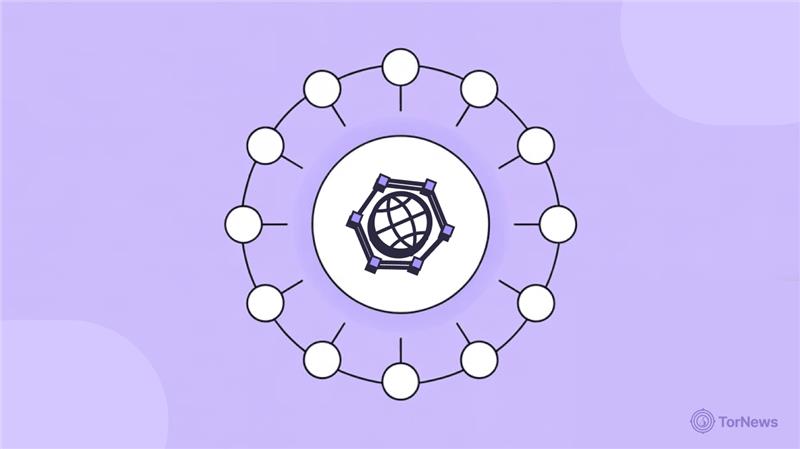
Now that we’ve considered how to browse responsibly on the internet, let us explore the top 10 best dark web search tools of 2026 more comprehensively. Read on!
1. OnionFind
OnionFind is a search engine designed for the Tor network. It’s a privacy-oriented service that indexes onion websites (platforms that are available on the dark web). Though it helps you to explore the dark web, it filters and blocks harmful or illegal content, such as content that promotes child exploitation. The platform removes all such links and redirects users to the appropriate resources. This makes it a safe option compared to not only typical search engines but also most other darknet search tools.
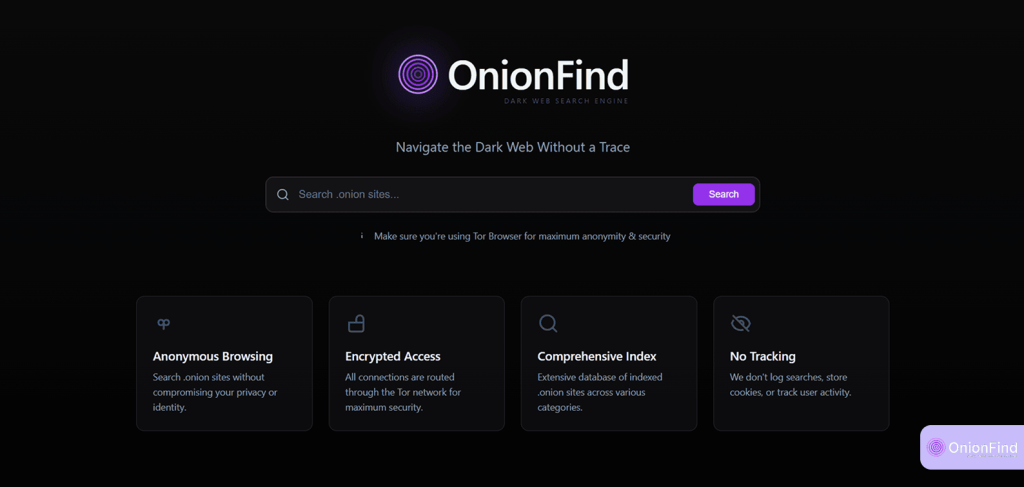
This Tor’s hidden services search engine also gives useful insights into the Tor ecosystem, and users can access it from both its clearnet site (onionfind.com) or with the Tor browser. OnionFind stands out from the rest; it protects user anonymity and doesn’t support IP tracking, IP logging, etc. OnionFind is very user-friendly as it has a clean interface, and with the service, users don’t need to rely on random link lists or unreliable search options.
2. Ahmia
Ahmia is indeed a great place to start for new dark web users for many reasons. It was developed in association with the Tor Project, and they were intent on keeping usability, safety, and security at the top of the list. In fact, Ahmia does filter and index (a bit) websites that publish and/or direct users toward bad, dangerous, or horrible content.

And unlike other search engines, you will not be on a website with a host of more sanitized links that keep you on the sketchy side of the web. Ahmia scans and blocks harmful or illegal content. It has open code, and transparency equals trust. Ahmia has an easy and clean User Interface that looks like any other search platform.
3. OnionLinks
OnionLinks, which is short for Tor Search, is one of the earliest traffic drivers on the dark web. This clearnet website has existed for many years and has one of the biggest .onion link indexes available, reportedly indexing over a million pages. Because of OnionLinks’s age and size, it is valuable for veteran users to find elusive or hard-to-find sites.
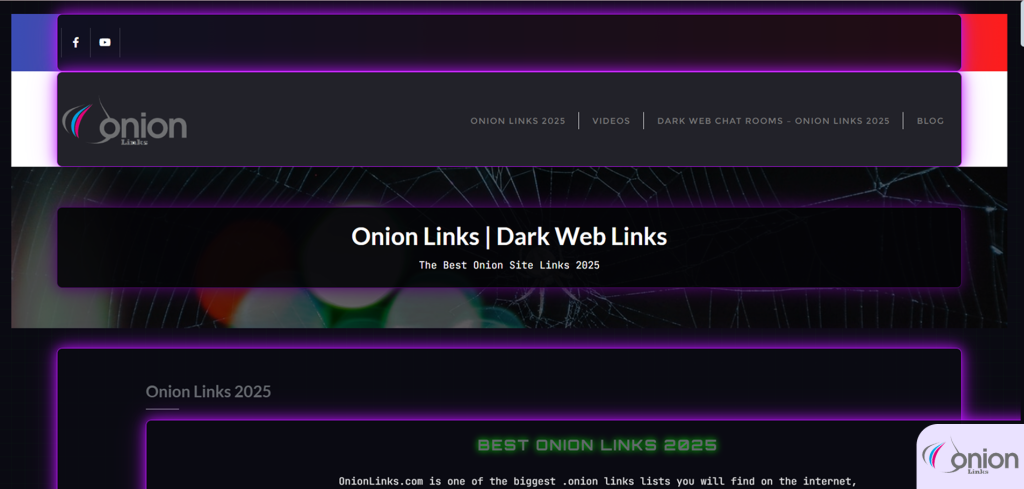
One of the biggest and most comprehensive databases of .onion sites. OnionLinks does not filter any of its results; you will see the dark web in its rawest version. For an engine with such a large index, it is shockingly speedy for a dark web engine.
4. DuckDuckGo
DuckDuckGo is primarily recognized as a privacy-conscious search engine on the surface web, but it also has a .onion counterpart, which is a great tool for dark web browsing.
The tool will not index .onion sites, but it allows you to search the regular web from the Tor network while remaining completely anonymous. This is very advantageous for research because it prevents tying your search queries to your identity.
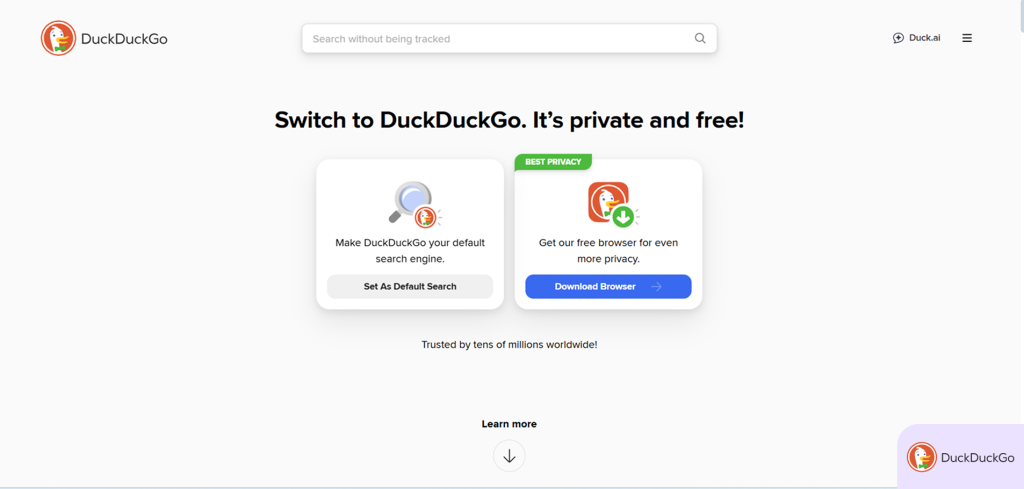
DuckDuckGo is well-known for its no-logs policy and does not track your search history. The user experience is the same as the surface web platform, and it makes it very easy to use. It is the best and safest tool for searching for regular websites while in the Tor network without identification.
5. Recon
Recon is a niche search engine that focuses entirely on the overlay networks used for underground activities. It has become a useful research tool for law enforcement, researchers, and those simply curious about the dark web economy. Recon can be used to cross-reference vendors, listings, and reviews between several darknet markets. This provides a larger picture of the underground economy.

The primary search engine for hidden internet market information. Enables you to follow a vendor’s reputation and activity on different platforms. Indexes thousands of vendors and millions of products. You can view both active and inactive marketplaces. A valuable resource for journalists and researchers looking at illegal online trade.
6. Onion Wiki
While it does not function as a traditional search service, Onion Wiki (a website created on the infamous The Hidden Wiki concept), without doubt, is one of the biggest launching pads for new dark web explorations. Like the original Hidden Wiki, OnionWiki is a community-edited directory that provides links to various .onion sites, sorted by topic.
It’s like Yahoo! from yesteryear, just for dark websites. The biggest obstacle is finding a working, legitimate version of The Hidden Wiki and its alternatives, which can be difficult. Once you find one (as in this case with OnionWiki), it provides curated access to the rest of the dark web – you can use it similarly to a search engine.
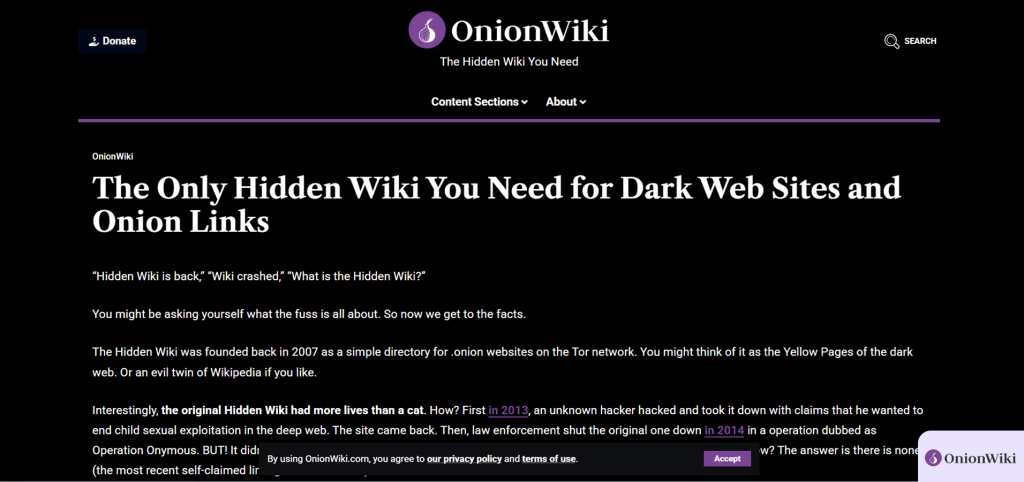
This is a clearnet site that basically is a directory for various dark web links. It provides a structured and indexed list of sites, which can be easier to navigate than a search tool. It’s great as a first step for new users who don’t know what to search for. Links are vetted and updated by members of the community.
7. TorDex
TorDex is emerging as one of the top dark web sites finding tools today, thanks to its large and constantly updated index. It is known as one of the largest search engines around and has a modern, clean interface. TorDex is also uncensored and focuses on a pure search experience, making it a very powerful option for those wanting to search the dark web completely uncovered.
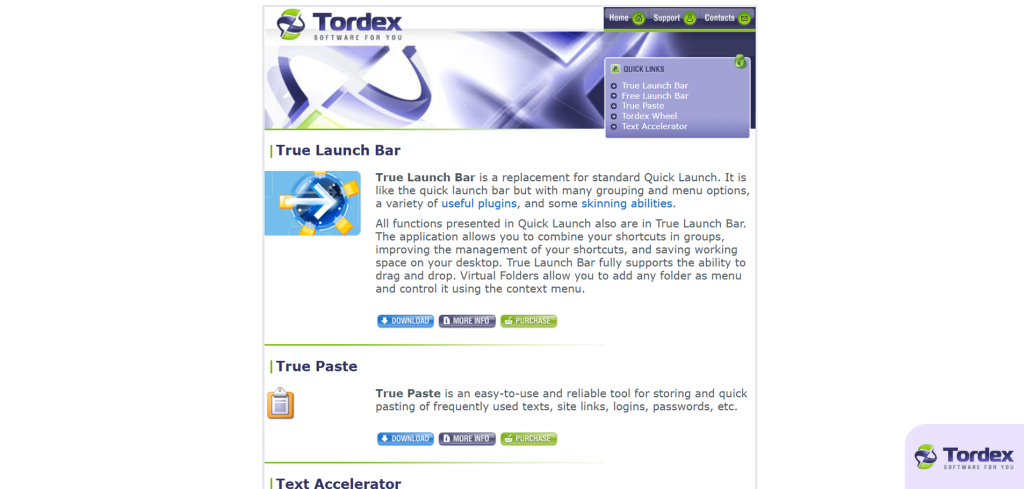
It has a very large and fresh database of .onion links. It gives you a really open look at the dark web. TorDex has a much nicer and more intuitive interface than many of the older engines. The search engine doesn’t look like it records or logs user queries.
8. VormWeb
VormWeb is a good alternative if you want an actual search engine that not only works but also has other features. It is developed by a group of enthusiasts who strive to give the user a clean and convenient interface to conduct their dark web searches. In addition, VormWeb has a blog and news section that talks about topics that relate to online privacy and the dark web, which helps make it resourceful.
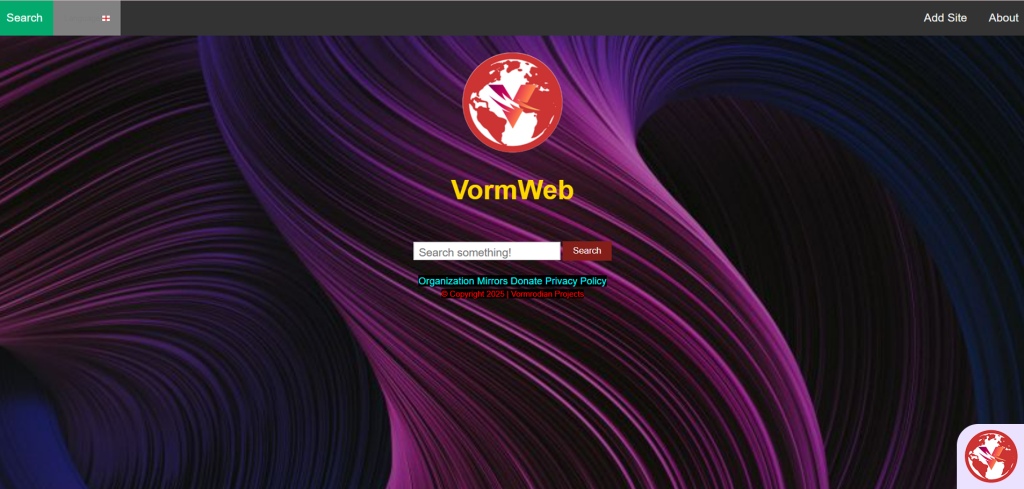
This service is very easy to use, especially for beginning users. Many users regard it as the most powerful search tool of the hidden web markets. Provides a potential for a huge range of filters to focus or narrow results. Has a huge volume of markets, vendors, and forums.
9. Haystack
Haystack is designed to be more than a search engine; it is designed to be a multi-pronged platform for the dark web community. It does not just offer a search, but also a community forum, a chat service, and a directory of links housed in a single place.
This not only provides a place of information gathering, but also a place to network with other users and ask questions. The search feature is decent, but the overall value of Haystack is derived from the unique community aspects of the platform.
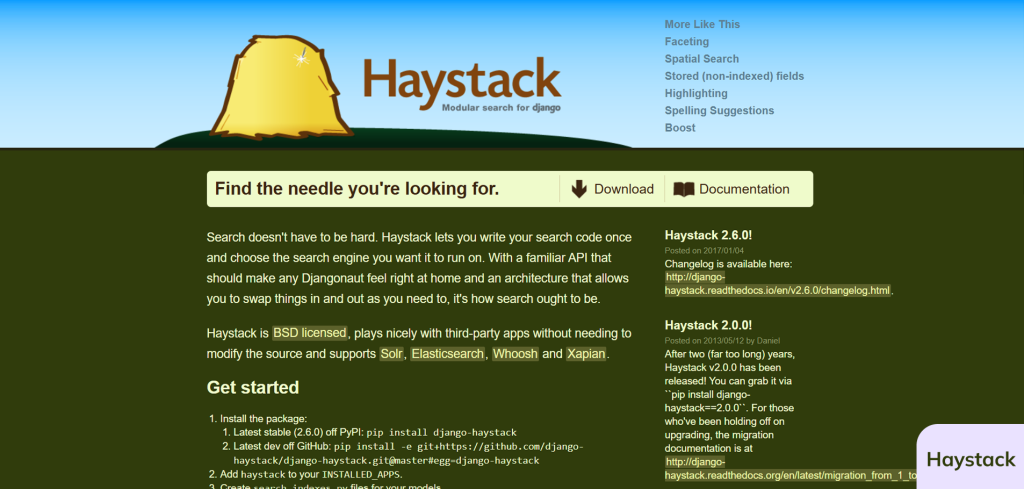
This Multifaceted site offers searching, forums, and chats. A great place to communicate with other Tor users. Solid indexing engine that returns useful and informative results. The forum and local directories can expose you to new sites and ideas.
10. DarknetSearch
DarknetSearch is a simple and effective dark web index engine with exactly what its name suggests. It is free and anonymous and maintains a clean, basic search engine format. This tool only does one thing and does it well: it is fast and simple to use.

It does not come with all the features of other sites, but for what it is attempting to do, finding .onion sites, it does it quicker and better than other tools. A minimalistic interface that is easy to use. This is a good tool if you are looking for something specific. They have a decent-sized database of links.
Bonus: Torch
Torch is an incredibly powerful and advanced search engine; however, similarly to Recon, it primarily focuses on the markets on the hidden layer of the internet. It has outgrown what can be seen as a simple search index directory and has developed to the point of becoming the ‘Google’ of the darknet economy.

Torch has evolved as a tool from both the perspective of size and functionality, and has indexed a massive amount of vendors, products, and forums, and it has produced a really amazing level of filtering features, by price, shipping origin, and market. It has a bitcoin mixer to add additional transaction privacy.
Best Dark Web Search Engine Features: Comparison Table
| Search engine | Primary focus | Censored? | Index size | User-friendliness |
|---|---|---|---|---|
| OnionFind | Super clean and secure browsing | Yes | Medium | High, intuitively simple |
| Ahmia | Secure & clean browsing | Yes | Medium | High |
| OnionLinks | Unfiltered & large index | No | Extremely large | High |
| DuckDuckGo | Anonymous surface web search | Not available | Not available (surface web) | Extremely high |
| Recon | Darknet market analysis | Not available | Large (markets) | Medium |
| OnionWiki | Curated link directory | No | Small | High |
| TorDex | Unfiltered & large index | No | Extremely | High |
| VormWeb | General search & news | No | Medium | Extremely high |
| Haystack | Community & search | No | Small | Medium |
| DarkSearch | Fast & simple search | No | Medium | High |
| Torch | Advanced dark net markets | Not available | Extremely large (markets) | Low (for beginners) |
Role of Dark Web Search Tools Today
By 2026, dark web search tools have evolved far beyond simple directories for onion services. They are now essential for navigating the dark web’s vast, fragmented landscape. Without them, finding specific information or legitimate web pages in this unindexed space would be nearly impossible. This is typical in cases where indexing and algorithms used by the surface web are not valid.
Without these tools, discovering applicable information in a world with no acknowledged pathosystem would be about as efficient as finding a book in a library with no catalog. The role of the search engines is multidimensional:
1. Gateways to Access
In comparison to just a few search engines in the surface world, such as Google, the dark web utilizes many smaller search engines but no spectacularly dominating players. Instead, most engines operate at ranges from semi-incompetent to somewhat competent to serve as gateways for information.
Users are typically directed to a secure, un-indexed site that is encrypted, for example, via any of the Google, DuckDuckGo, or Ahmia browsers.
New and novice users to the dark web should engage with sites such as Ahmia, wherein advanced to extreme knowledge users may favor uncensored indexes. Also, in some cases, these sites behave equally to the manipulation of Tor in addition to being indexed, such as Torch or TorDex.
2. Privacy Protection
Search engines that let you visit the darknet, such as DuckDuckGo’s .onion variant, don’t play with their users (mostly) and always make sure they keep them anonymous & protect their privacy. They don’t even track the users, nor do they log the queries they searched on the engines.
In this day and age, when there are groups of people trying to use other people’s digital trail for their selfish interests, without permission, search engines allow people to search sensitive topics & issues without fearing that someone out there is tracking or watching them.
3. Niche Focus
Some search platforms are hyper-specialized, enabling deep search capabilities for specific investigations. For example, Recon allows for deep search across vendor profiles and transaction histories within illicit online markets, far beyond simple site discovery. They also allow the user to use complicated filters to support an investigation into a specific topic.
While these types of search engines have high legal and ethical ramifications, it’s indicative of just how specialized and segmented the dark web trajectory has become.
4. Content Guides & Community Discussion
Hidden Wiki, TorLaND & similar engines offer both a standard search site and a curated directory or community discussion forum. These types of spaces provide work sites while allowing users to interact, give peer recommendations on safe sites, and learn how to operate safely on the dark web.
5. Risk Guidance
The dark web is risky – scams, phishing attempts, and bad materials abound. Search engines do not have a direct mission to reduce risk; they act as sources of navigation. They can somewhat improve navigation and reduce the risk of harm by filtering harmful sites or relying on and using community-verified links.
At the same time, platforms that don’t censor posts expose users to raw content and sometimes allow people to access illegal or content they don’t want. Users must use operational security.
6. Information & Education
Some, like VormWeb, bring added value beyond standard search functions. They provide news, blogs, and updates about trends in online privacy. This educational element helps dispel the myths surrounding dark-web usage. The use of educational resources reinforces safe browsing.
All in all, in 2026, dark web search engines will not simply enable users to “find hidden sites” based on past preconceptions of users. They’re doing so while enabling a controlled, anonymous, and sometimes community-based exploration of one of the internet’s most misunderstood ecosystems.
Risks of Using Dark Web Search Engines
Even though we all applaud these search engines, they are also very dangerous in some way. So you must know what is important to remain safe on the dark web:
- Malware and phishing: developers behind some .onion sites designed them in a way that tempts you to download malware or add your own personal details. Search engines might gradually lead you into those sites before you know what you’re doing.
- Illegal and disturbing content: In general, the vast majority of the dark web is not illegal; however, search engines will eventually give you links to sites containing illegal and highly disturbing content.
- Scams: The dark web is full of scams like fake marketplaces and phishing sites set up to steal your cryptocurrency.
- Government surveillance: While Tor provides a good deal of anonymity, there are government agencies that actively scrutinize the dark web. Many illegal activities do take place on the dark web, so there are serious consequences for someone getting caught engaging in them.
- Dead links: The dark web is an ever-changing and unstable network – often sites simply disappear, often without warning. As such, you would come across a lot of sites that do not work (dead links), which can annoy you so much.
By first knowing these dangers & following the tips to stay safe, which we have in this article, you will considerably lower the risks you may face and use the search tools without fear.
How to Stay Safe While Accessing the Dark Web
A critical safety principle is knowing the limits: the dark web doesn’t grant inherent safety. It requires you to proactively protect your anonymity. No authority regulates this space, so your security is your responsibility. Here’s how (no authority is regulating the people using the dark web, so protect yourself while using that space):
- Don’t share personal information: If you want to really hide yourself, avoid using your real information, such as passwords, real names, email addresses, or any other piece of detail that criminals can link to you.
- Don’t use your credit card: It is very risky to pay for anything on the dark web with your bank account or your credit card. Everything sold on the dark web is bought with numerous cryptocurrencies, including Bitcoin or Monero.
- Be cautious of everyone: Trust absolutely nobody. There are scams everywhere, and people are not who they pretend to be.
- Evaluate communities carefully: Even in legitimate dark web forums, maintain operational security. Avoid sharing personal details, as members’ motives are not always transparent.
- Disable scripts: In your Tor browser, change your security to the “Safest” option to turn off possible malicious scripts.
- Don’t download: Downloading files is risky – they could have malware or spyware, which is designed to take over your computer.
- Use a strong, unique password: If you create an account on a site accessed via an onion link, you must use a long, random password you have never used anywhere else.
By understanding these risks and following the safety tips outlined, you can significantly mitigate the dangers. It’s also worth noting that the existence of these risks is why professional ‘dark web monitoring’ has become a critical component of modern digital security strategies for organizations worldwide.
FAQs
No. The dark web comprises content found on websites that are intentionally hidden from, and do not have as easy visibility as traditional search tools, which crawl the surface web. They exist on the .onion domain, accessed via the Tor browser (or similar tools). Search services like Google and Bing only crawl the surface web; therefore, they will not find the true dark web and content accessible through them.
Not really; some, like OnionFind and Ahmia, will filter harmful or illegal content, while others will just serve you unfiltered results with possibly dangerous links. Even so-called non-lethal search results can lead to a phishing page or a site with malware links. This is why it is a good idea to combine a reputable search engine with a VPN, the Tor browser, and the “safest” security settings before you begin browsing. Also, try not to use any dark web finding tools today, free of charge. If they need you to subscribe, better to be safe than sorry.
You can liken a curated directory to a list of links in categories, or a static list of resources that an organization or community maintains. This will actually heal newcomers who don’t know the first things to do. The difference is that a search engine allows for active querying, as well as enabling you to discover new websites that do not fit at all into the pre-established list. Both have their place; however, curated directories can quickly go out of date, while factors such as changed page contents have the search tool indexes as a continual refresh.
Yes. Despite what many people have come to believe or think, not every dark-web activity is illegal. Some of the legal things people do in the space are carrying out safe communications in the case of journalists and activists, getting research data that is not open to the public, avoiding anything that has to do with censorship in unaccepting regimes, communicating in communities that don’t play with privacy, etc. But, since illegal content also appears on the dark web, tread with caution so you don’t discover the one that can land you in jail.

